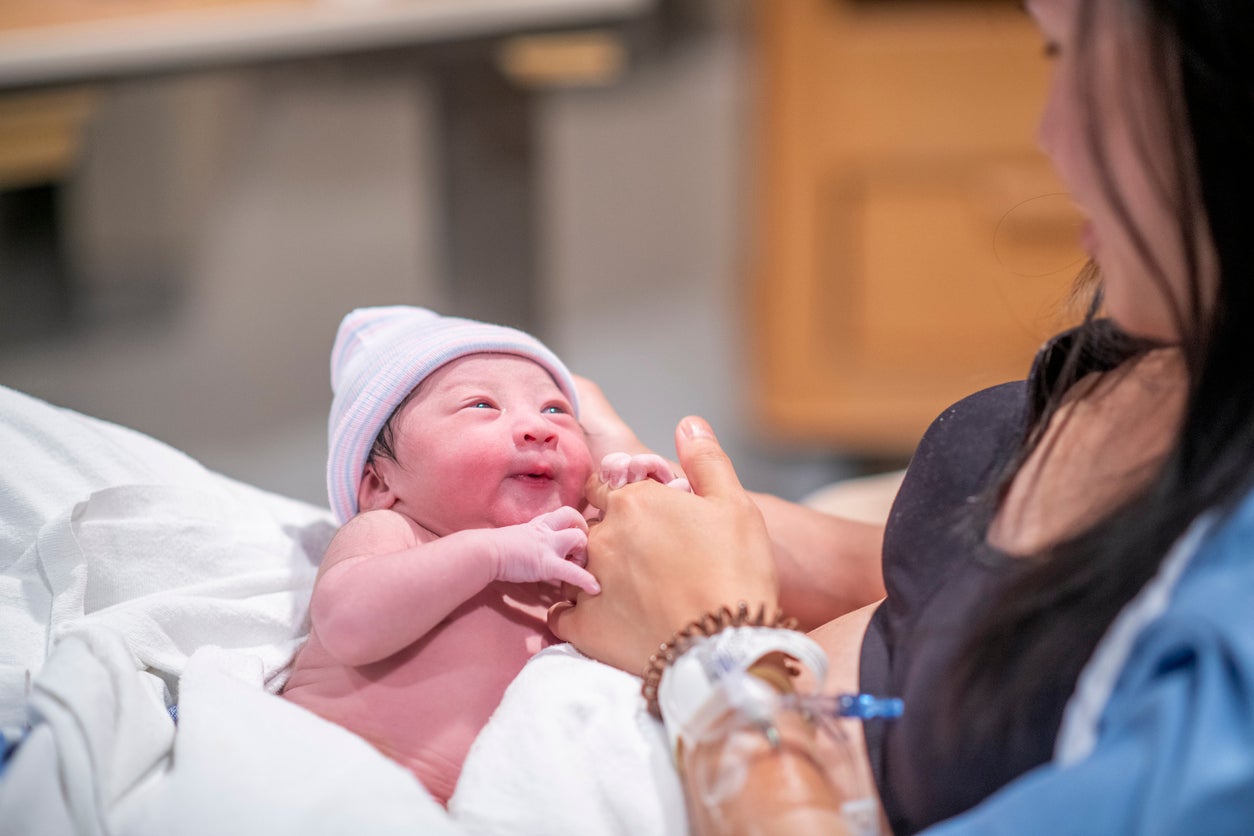Bringing a new child home for the first time is hard enough – let alone during a pandemic
Those with newborns are missing out on vital support but maths and evolutionary biology say it’s all going to be OK


It struck me as I was grappling with the realisation that I’m now the parent of a teenager – imagine what it must be like bringing a new child home today.
Parents look back when their children have birthdays, especially epochal ones. It’s something that children often find irritating, all the more so when nostalgic photos get posted on Facebook. It’s something you really shouldn’t do if they dislike the idea.
What I remember about taking our son home was how unnerving it was and this, obviously, was in a world that at least seemed semi-sane and was pandemic-free.
There we were with a miniature human being, feeling we had no real clue about what we were supposed to do next and worried that our son might somehow break if we did something wrong.
My wife and I almost wondered whether we should call someone in authority to ask whether they were completely sure that we were fully qualified to take on the responsibility we had.
We’d done an NCT course, we’d prepped our flat, we’d purchased the necessary kit, we’d talked to people we trusted and yet still, faced with that awesome, terrifying responsibility, we felt that we knew nothing. NOTHING.
It probably didn’t help that our son’s birth was a traumatic one, involving a rapid trip to theatre for my wife, and that he then proceeded to make so much noise after he was successfully delivered that the midwives took him off the ward for a while so she could snatch a couple of hours’ sleep.
He also had trouble feeding by dint of a tongue-tie, which no one had picked up, that contributed to his distress.
We were fortunately able to call on some help in the early days. My brother, for example, schlepped across London to put the pram we’d bought together because the instruction manual it came with looked like a quantum mechanics textbook to my sleep-deprived brain.
That sort of assistance is much, much harder to find today thanks to the pandemic, which can only be ramping up the pressure on new parents.
Even with the vaccine being rolled out, the pestilential microbe must be turning scary into the real-life representation of Edvard Munch’s ‘The Scream’ for new parents.
Sure, sure, there are books that purport to be instruction manuals. Online resources too.
Actually, there are too many of the damn things. They often seem to have been written by people who have a similar mentality to the brutally authoritarian drill sergeant in the late Stanley Kubrick’s Full Metal Jacket.
There’s an entire industry seemingly devoted to telling new parents that they’re getting it terribly wrong.
The products don’t tend to come straight out with it. But read enough of the books, which do an impressive business, and it’s the clear implication. It’s what you’ll come away with unless you do what they say and adopt the mentality of that drill sergeant or perhaps a headteacher from a 1950s convent school. Mother and baby must wake up at 7am sharp and have everything between then and bedtime strictly regimented.
I’ve not watched The Simpsons for years, not since its once sharp satire was replaced with silliness, since before the problems with some of the characters (such as Apu) started to become obvious.
But I have to admit there was a scene centring on the baby of the sitcom family, Maggie, which appeared before Pixar’s Onward in cinemas, that was very much on point.
In it Marge puts her daughter into a playground sandpit and sits alongside a couple of mothers. They’re all reading books. The titles: You’re Doing Everything Wrong, How Dare You Not Breastfeed, Help! My Baby’s Ugly.
That about sums it up.
It’s time to redress the balance a bit, especially now with a new year ahead of us. So here it is: maths and evolutionary biology say that you’re going to do OK.
It’s fairly simple. The world’s population wouldn’t have reached its current level if the vast majority of people weren’t able to successfully parent their offspring. The instances where things go seriously awry are vanishingly rare in comparison to those where things go well. It’s only because they are rare that they tend to become the subject of harrowing news stories that inevitably make them seem more common than they actually are.
That’s not to say it’s easy. It ain’t. But if you’re sitting on your sofa wondering why the hell you were allowed home with a new child, the very fact that you’re worrying shows you’re probably going to be OK.
Join our commenting forum
Join thought-provoking conversations, follow other Independent readers and see their replies
Comments



Bookmark popover
Removed from bookmarks